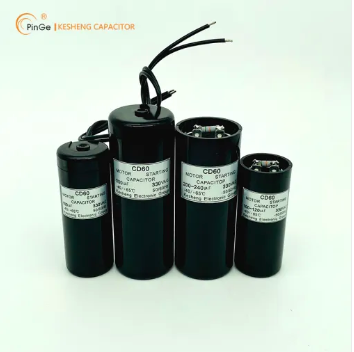Aug. 30, 2023
Electronic Components & Supplies
Capacitors are fundamental electronic components that store and release electrical energy. They play a crucial role in a wide range of electronic circuits, enabling them to perform various functions, from filtering out unwanted noise to storing energy for quick release. One particular type of capacitor, the electrolytic capacitor, holds special significance due to its unique properties and diverse applications.
Understanding Electrolytic Capacitors:
An electrolytic capacitor is a type of capacitor that uses an electrolyte as one of its electrodes. It consists of two conductive plates, known as the anode and cathode, separated by a dielectric material. The dielectric in electrolytic capacitors is usually a thin oxide layer that forms on the surface of the anode. This oxide layer allows for high capacitance values and relatively small physical sizes.
The key characteristic of electrolytic capacitors is their polarity. They are polarized, meaning they have a designated positive (+) and negative (-) lead. Applying voltage in the correct polarity is crucial to their operation, as reversing the polarity can lead to the breakdown of the oxide layer and even catastrophic failure.
Applications of Electrolytic Capacitors:
Power Supply Filtering: One of the primary applications of electrolytic capacitors is in power supply circuits. Electronic devices often require stable and ripple-free DC voltage. Electrolytic capacitors are used to smooth out the output of rectified AC voltage in power supplies. They absorb the voltage spikes and ripples, ensuring a steady and constant supply of power to the device.

Coupling and Decoupling: Electrolytic capacitors are used for coupling and decoupling purposes in amplifier circuits. They allow AC signals to pass while blocking DC components, thus enabling the transmission of only the desired audio or signal frequencies. Additionally, they serve as decoupling capacitors to provide nearby AC ground to sensitive components, reducing noise and interference.
Audio Applications: In audio systems, electrolytic capacitors are often found in crossover networks for speakers. They help direct different frequency ranges to the appropriate speakers, ensuring accurate sound reproduction. High-quality electrolytic capacitors with low ESR (Equivalent Series Resistance) are preferred in such applications to maintain signal integrity.
Timing Circuits: Electrolytic capacitors, along with resistors, are used to create timing circuits. These circuits generate specific time delays and are found in applications like oscillators, timers, and pulse generators.
Motor Starters: Kesheng Electrolytic capacitors are commonly employed in motor starter circuits. In devices like air conditioners and refrigerators, they provide the initial boost of energy required to start the electric motors, thus reducing the load on the power supply.
Back-Up Energy Storage: In situations where a temporary backup power source is needed, such as in uninterruptible power supplies (UPS) and memory backup systems, electrolytic capacitors can provide a brief surge of power to prevent data loss or equipment damage during power interruptions.
Voltage Regulators: Electrolytic capacitors are used in voltage regulator circuits to stabilize the output voltage by storing and releasing energy as needed. This ensures that the voltage supplied to the load remains constant even if there are fluctuations in the input voltage.
In conclusion, electrolytic capacitors are essential components in the realm of electronics, offering a range of applications that contribute to the proper functioning of various devices and systems. Their ability to store and release energy, coupled with their relatively high capacitance values, makes them indispensable in power supply, audio, timing, and motor control circuits. As technology continues to evolve, electrolytic capacitors are likely to remain integral to modern electronic designs, ensuring the efficient and reliable operation of countless devices and systems.
Previous: Factors to Consider When Selecting Power Resistors
Next: Lithium Battery Module Pack Assembly Line: Enhancing Efficiency and Quality
If you are interested in sending in a Guest Blogger Submission,welcome to write for us!
All Comments ( 0 )